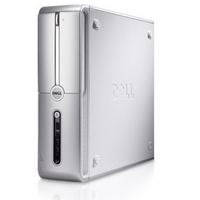Washington, NC Real Estate - A cool site with real estate information in Washington, Bath, and Belhaven, North Carolina.
Greenville, NC Real Estate - Another real estate site with information for Greenville and Winterville, NC.
Morehead City, NC Real Estate - Another real estate site with information for Atlantic Beach and Emerald Isle, NC.
Jacksonville, NC Real Estate - A real estate site with information for Jacksonville, NC and Richlands, NC and homes for sale.
|
Main Controller
I've been researching hardware and software automation controllers literally since I was 15 years old and the options have grown tremendously over the years. I went back and forth between using a hardware controller and a software controller for several years until college when I realized that no hardware controller will ever be able to handle the expectations and logic I want out of my home automation setup. I guess I have always been the programmer type anyway. Of course you loose a lot of the reliability and stability that hardware controllers provide, but the problem solving and bug hunting is part of the fun for me.
Hardware
 Currently my main controller hardware is a Dell Inspiron 530S Dual Core PC with 3GB of memory and a 320GB sata hard drive. I really like this box because of its small form factor (about half the width of a normal tower) and the low power consumption. According to my Kill-A-Watt power meter, the box idles around 48 watts which is much better than my previous boxes that I've used before. With my local electric rates, the main controller is costing me 14 cents a day or about $4.20 per month to run 24/7.
Update December 18th 2011: I switched out the Dell Motherboard for a server motherboard with built in hardware RAID support. Currently I'm running two identical 320GB sata drives in a Raid 1 configuration for redundancy. I installed the motherboard and drives in a Maxtop ICX-4830B-18 4U Rack Mount ATX case. The case is not the highest of quality, but it works as good as any other case I suppose. I like having the main controller rack mounted (see the wiring closet page for a picture) so that it saves space and looks neater.
Software
The main cntroller is currently running Fedora Core 16 as the operating system that everything runs on. It's pretty well supported and usually easy to get help on when you get stuck.
I decided to use MisterHouse as my home automation controller several years ago and I can't say enough good things about it. MisterHouse is a free, open-source, Perl-based scripting program that runs on a variety of operating systems including Linux and MS Windows. Many people have contributed to the project by adding modules that support new hardware and features, example code, and bug fixes.
Since MisterHouse is entirely written in Perl, you can program just about any task or macro you can think of. If you are curious how something works behind the scenes, you simply just open up the Perl libraries, find the code in question, and then you have your answer.
I use the Cepstral text-to-speech engine which interfaces nicely with MisterHouse to provide spoken announcemnts throughout the house. The voices sound great and the licenses are pretty reasonable ($29 each). Right now I'm using the voice for Allison, and you can barely tell it's computer generated.
Here are a few resourses if you are considering using MisterHouse as your home automation controller:
- Wiki - A great place to start if you are new to MisterHouse.
- Main Website - This is where you can download the latest version of MisterHouse and find the current documentation.
- Mailing List (Yahoo! version) - The place to ask questions when you get stuck. The project has a pretty active community that is always willing to help if you get stuck.
|

